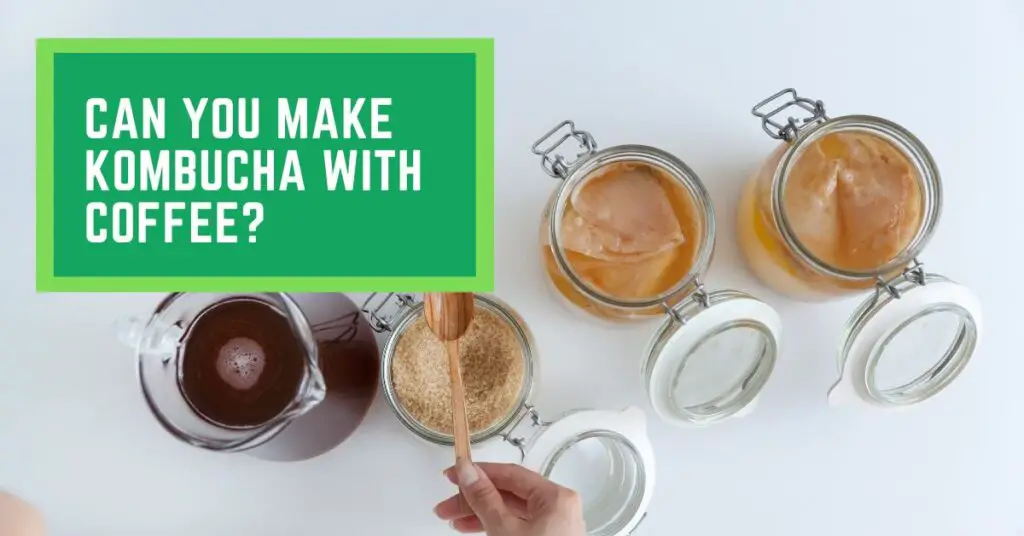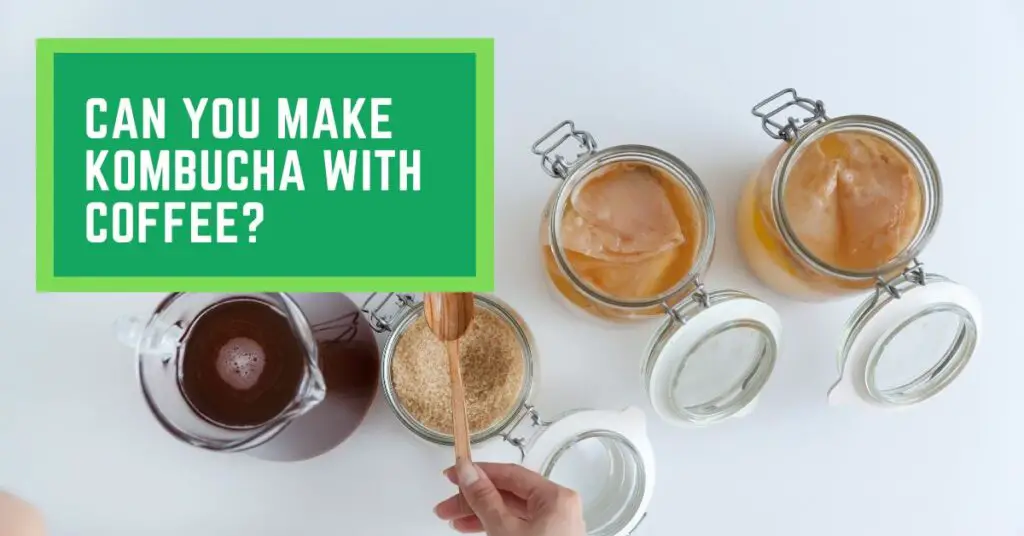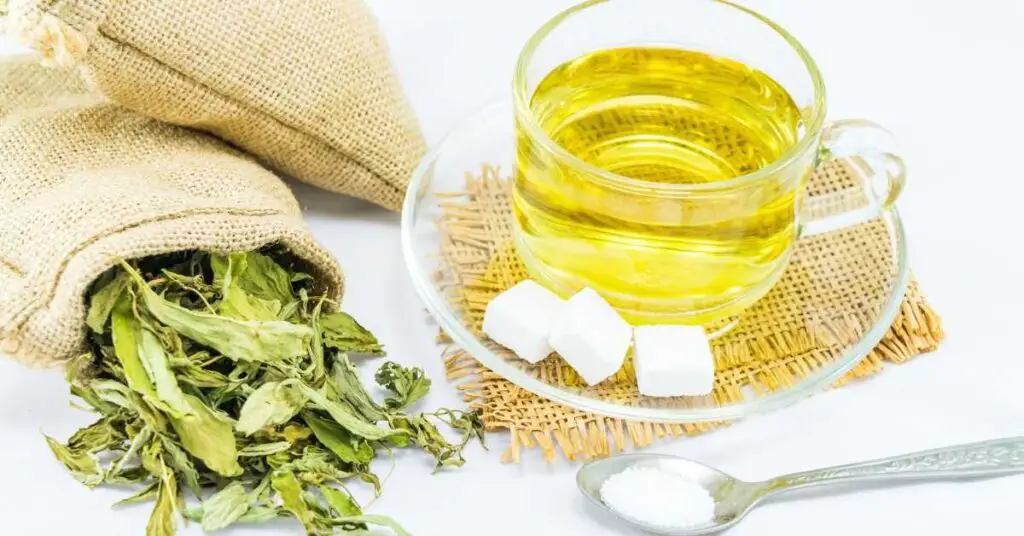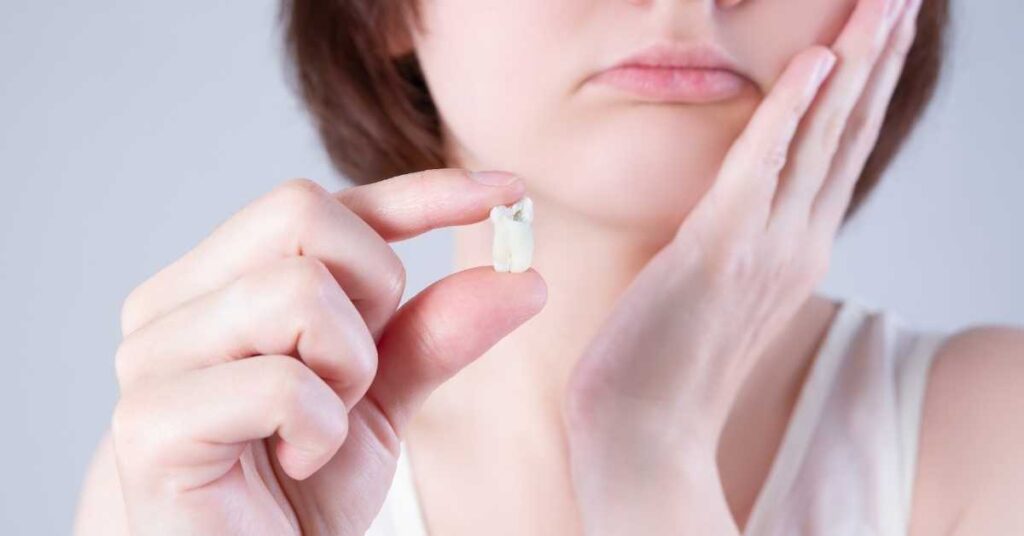Kombucha is a fermented tea that has been around for centuries, and coffee is a beloved morning beverage for many. So what happens when you combine the two?
You can take kombucha with coffee, which is a match made in heaven, as the two drinks complement each other perfectly.
The acidity of the kombucha helps to balance out the bitterness of the coffee, and the two flavours work together to create a unique and refreshing beverage.
In this article, we’ll explore more about kombucha with coffee, as well as the benefits of doing so.
What is Kombucha?
Kombucha is a fermented tea that has been around for centuries. It is made by adding a type of bacteria and yeast to sweetened tea and then allowing it to ferment.
Kombucha has a variety of health benefits, including gut health, immunity, and energy levels. It is also said to detoxify the body and improve digestion.
How to Make Kombucha With Coffee?
Kombucha is a delicious and healthy probiotic drink that is easy to make at home. Adding coffee to your kombucha can give it a boost of flavour and energy.
Here are some simple instructions for making kombucha with coffee:
1. Brew a pot of strong coffee. You can use any type of coffee you like, but we recommend using dark-roasted coffee for the best flavour.
2. Let the coffee cool to room temperature.
3. Mix the coffee with sweetened tea and kombucha starter culture in a clean glass jar.
4. Cover the jar with a clean cloth and rubber band and let it ferment for 7-30 days.
5. After fermentation, strain the kombucha and enjoy! You can store it in the fridge for up to a month.
Kombucha with coffee is a delicious and refreshing drink that is perfect for enjoying any time of day. Give it a try and see for yourself how delicious it can be!
Can You Ferment Coffee Like Kombucha?
The short answer is yes; you can ferment coffee like kombucha. The long answer is a bit more complicated.
Coffee is already a fermented beverage, as the beans go through a fermentation process before they are roasted. However, you can further ferment coffee by adding bacteria and yeast, like you would with kombucha.
This secondary fermentation process will change the flavour of the coffee, making it more acidic and tangy. Some people love this taste, while others find it unpalatable.
How Long Should Coffee be Fermented?
If you want to try fermenting coffee at home, it’s important to use fresh, high-quality beans. You’ll also need a scoby (symbiotic culture of bacteria and yeast) to get the fermentation process started.
Once you’ve gathered your ingredients, the process is fairly simple. Just brew a pot of coffee, add the scoby and some sugar, and let it sit for a week or two.
Fermented coffee can be stored in the fridge for up to a month. Just be sure to give it a good shake before drinking, as the sediment can settle at the bottom.
What is The Taste of Kombucha With Coffee?
Coffee is a brewed beverage made from the roasted seeds of the coffee plant. The coffee plant is a member of the genus Coffea, which includes around 60 different species.
Coffee beans are actually the pit of the fruit that grows on the coffee plant. The taste of coffee can vary depending on its variety, origin, roast level, and brewing method.
Kombucha with coffee added to it will have a slightly different taste than kombucha without coffee.
The coffee will add bitterness and acidity to the kombucha, which some people may enjoy.
However, others may find that the coffee over helical 19 diminishes the flavour of the kombucha. Ultimately, it is up to the individual to decide whether they like the taste of kombucha with coffee or not.
Does Caffeine Affect The Probiotics in Kombucha?
Many people love to drink kombucha for its probiotic benefits. Probiotics are live bacteria and yeasts that are good for your gut health. They can help with digestion and also provide some other health benefits.
However, kombucha also contains caffeine. This is because it is made from tea, which naturally contains caffeine. So, does this mean that the caffeine in kombucha could cancel out the probiotic benefits?
The caffeine in kombucha is not enough to harm the probiotics. In fact, some research has shown that the probiotics in kombucha can actually help to reduce the effects of caffeine.
So, if you’re looking for a healthy and delicious way to get your probiotic fix, kombucha is a great choice!
Different Recipes to Make Kombucha With Coffee
As you might already know, kombucha is a delicious, healthy probiotic drink that offers many benefits. And while there are many ways to enjoy kombucha, one of our favourites is by adding coffee.
Not only does coffee add a boost of energy and flavour to kombucha, but it also provides numerous health benefits of its own. So if you’re looking for a delicious and healthy way to enjoy kombucha, be sure to try one of these recipes!
1. Kombucha Coffee Cocktail
This refreshing cocktail is perfect for summer gatherings, or anytime you need a pick-me-up. Simply combine equal parts kombucha and cold brew coffee, then add a splash of your favourite alcohol (we like vodka or tequila).
2. Kombucha Mocha
For a delicious and creamy kombucha mocha, simply combine kombucha, cold brew coffee, and chocolate milk in a blender. If you want a little extra sweetness, add a few drops of liquid stevia or a small amount of your favourite sweetener.
3. Kombucha Latte
This rich and creamy kombucha latte is perfect for those who love the taste of coffee but want to avoid caffeine. To make it, simply combine kombucha, decaffeinated cold brew coffee, and milk of your choice in a blender.
Is There a Coffee Version of Kombucha?
While kombucha is traditionally made with black or green tea, some companies are now making kombucha with coffee. This coffee kombucha is said to have all the same probiotic benefits as regular kombucha, but with an added boost of caffeine.
If you’re looking for a probiotic-rich drink that will also give you a little energy boost, coffee kombucha might be worth trying. However, it’s important to note that kombucha, in general, is an acquired taste. So, if you’re not a fan of regular kombucha, you may not like coffee kombucha either.
Frequently Asked Questions Related to Kombucha With Coffee
1. Can you make kombucha with something other than tea?
Yes, you can make kombucha with something other than tea. Coffee, herbal teas, and nutrient-rich fruit juices are all great options for kombucha brewing.
Just be sure to use a sweetener if you’re not using tea, as kombucha needs some added sugar to ferment properly.
2. Can I mix kombucha and coffee?
You certainly mix kombucha and coffee well! In fact, many people enjoy doing just that.
Kombucha adds a bit of zipping to coffee, and coffee can help round out the flavour of kombucha.
Be warned, however, that combining these two caffeinated beverages can give you quite a jolt of energy! So if you’re planning on mixing kombucha and coffee, maybe make sure it’s early in the day.
3. Is coffee kombucha healthy?
Kombucha is definitely healthy! In fact, it’s loaded with antioxidants, probiotics, and other beneficial compounds.
One of the main benefits of kombucha is that it helps to maintain a healthy balance of gut flora.
The probiotics in kombucha can help to increase the number of good bacteria in your gut while also helping to reduce the number of bad bacteria. This can help to promote better digestion and overall health.
Kombucha is also a great source of antioxidants, which can help to protect your body against free radical damage.
Free radicals are unstable molecules that can cause damage to cells and DNA, leading to inflammation and accelerated aging. Antioxidants help to scavenge these harmful radicals and protect






